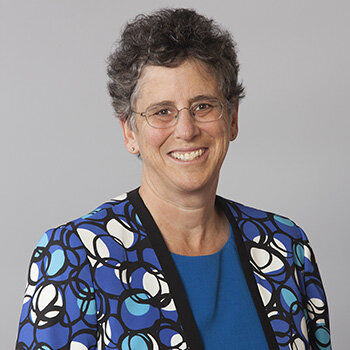Guest Post: Marjorie Peerce’s Commitment to Clemency Project Should Be an Inspiration to All
Every once in awhile, we meet people who truly inspire us to be better people and better lawyers. Marjorie Peerce is one of those people. As a partner in the New York office of Ballard Spahr she focuses her practice on white collar, regulatory and commercial defense. Yet since 2014, in addition to her busy practice, she has made time to work tirelessly to recruit and train volunteer lawyers to provide free legal assistance to federal inmates who may be eligible to have their sentences commuted or reduced by the President of the United States. Over 3,000 attorneys across the country have volunteered their time to work on this project, including 100 lawyers from Ballard Spahr. Every application submitted by Ballard Spahr is reviewed by Marjorie. She recently saw the first fruits of her labor and that of her colleagues when, on March 29, 2016, Obama granted clemency to 61 federal inmates, 25 of whom came through Clemency Project 2014 and two of whom were represented by Ballard Spahr attorneys.
To put this in context, on April 23, 2014, former Deputy Attorney General James M. Cole announced the DOJ’s initiative to encourage qualified federal inmates to petition to have their sentences commuted or reduced by the President. Under the clemency initiative, the DOJ is prioritizing applications from inmates who meet the following criteria:
Currently serving a federal prison sentence and likely would have received a substantially lower sentence if convicted of the same offense today;
Non-violent, low-level offender without significant ties to large-scale criminal organizations, gangs or cartels;
Have served at least 10 years of their prison sentence;
Do not have a significant criminal history;
Have demonstrated good conduct in prison; and
Have no history of violence prior to or during their current term of imprisonment.
Approximately 35,000 inmates responded to a Bureau of Prisons questionnaire indicating that they believe they meet the clemency criteria.
After the clemency initiative was announced, the Administrative Office of Courts determined that inmates do not have a 6th Amendment right to counsel for the purpose of seeking clemency. As a result, federal money cannot be used to pay attorneys employed by the Federal Defenders or through the Criminal Justice Act to represent inmates under this initiative. In an effort to address the need for federal inmates to obtain legal assistance in submitting clemency applications, Clemency Project 2014 (“CP 2014)” was formed by lawyers from the Federal Defenders, American Civil Liberties Union, Families Against Mandatory Minimums, the American Bar Association, and the National Association of Criminal Defense Lawyers (“NACDL”). CP 2014 lawyers screen inmate requests to determine if they meet the clemency criteria, assign a volunteer lawyer to prisoners who appear to qualify, then assist the inmate in filing the clemency request. To date, 250 clemency applications have been granted by the President; approximately 60 of those applications came through CP 2014.
I spoke to Marjorie about the two individuals recently granted clemency by the President who had been assisted by Ballard Spahr attorneys. Kevin County, a 43 year old African American, was convicted in New Orleans for selling small amounts of crack cocaine and heroin. Because he had a prior felony conviction, he received a sentence of 20 years (240 months) in prison and has already served 167 months. He was scheduled for release in 2020. Under current law, Mr. County would have been sentenced to 70-80 months in prison. Last week, Marjorie, together with Joanna Jiang and Erica Leatham, the Ballard Spahr attorneys who worked directly with Mr. County, called Mr. County in prison to tell him that he had been granted clemency by the President and would be released in July. Mr. County’s response was simple but powerful: “God bless you! Thank you!”
Marjorie spoke to the New York Times after the announcement and praised President Obama for commuting the sentences of 61 federal inmates including Mr. County and stated “[t]he war on drugs from the 1990s resulted in inordinately harsh and long prison sentences for offenders who did not deserve to serve that length of time.” The other Ballard Spahr client, Angela Laplatney, was represented by Ballard's Salt Lake City office, including Blake Wade and Melanie Clarke, also received a grant of clemency from a 20 year sentence for selling methamphetamine in Wyoming. Ms. Laplatney had served over 10 years of her sentence and was scheduled to be released in 2022. She, like Mr. County, will be released in July.
Marjorie is grateful to Ballard Spahr for supporting the work of CP 2014, and noted that “pro bono is ingrained in the DNA of the firm.” She likewise praised the work of her NACDL partners, Jane Anne Murray and Norman Reimer, who serve on CP 2014’s Steering Committee with her, through which they certify that applications submitted through CP 2014 meet the clemency criteria.
Marjorie told me that in over 30 years of practicing law, her work with CP 2014 has been “the single best thing” she’s done. She is on a mission to help as many federal inmates as possible who are serving sentences that, under current law, are “obscenely severe.” The recent grants of clemency by the President have further fueled Marjorie’s drive to help these inmates, and there is no doubt that her efforts in recruiting, training, and mentoring volunteer attorneys will pay off and change the lives of people who, until now, have been resigned to spending many more years in prison. Marjorie’s enthusiasm for CP 2014 is contagious. Lawyers who, like Marjorie Peerce, are willing to give up some of their time to work on this project will cherish the rare opportunity to change lives.
By: Sharon L. McCarthy
Partner, Kostelanetz & Fink, LLP
New York, New York


